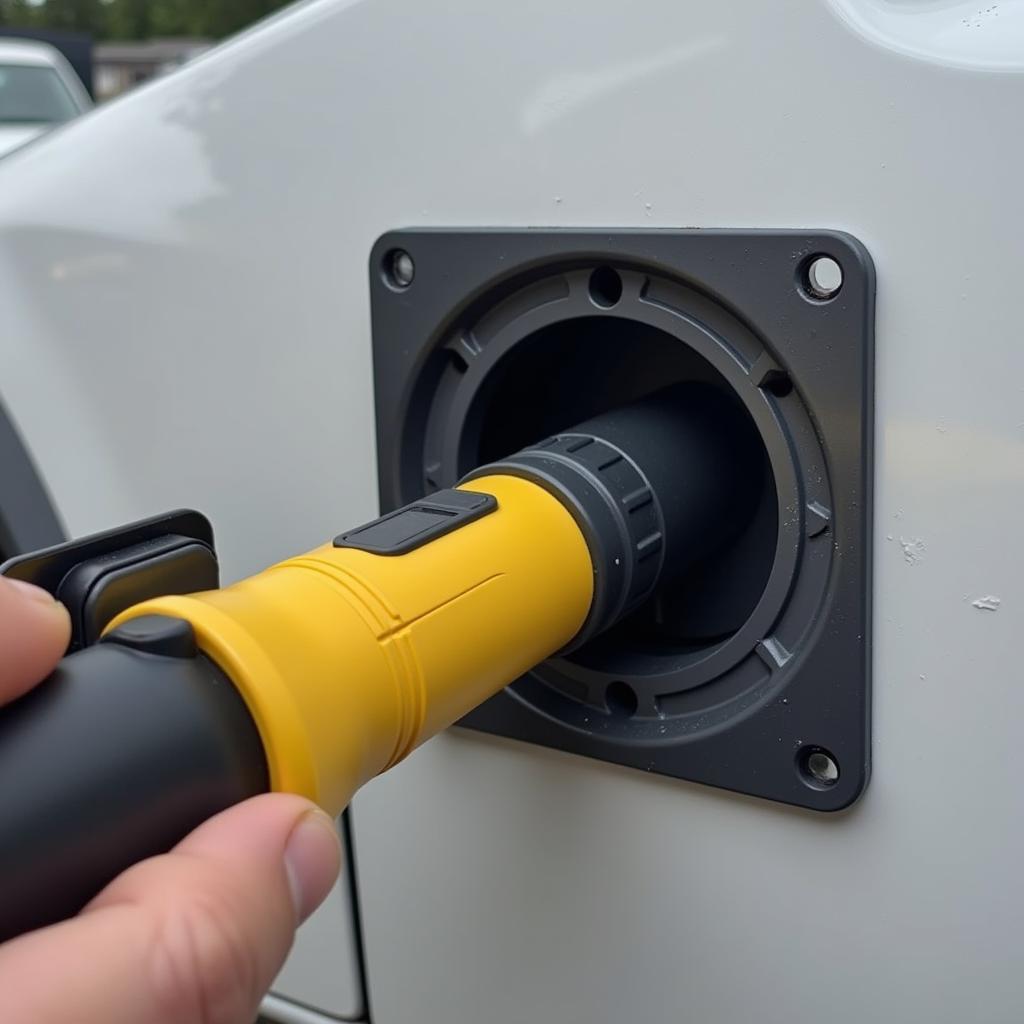How Do I Check Service History on a Car?
Knowing a car’s service history is crucial when buying a used vehicle. It provides valuable insights into the car’s maintenance, potential issues, and overall reliability. But how do you access this information? Don’t worry, we’ll guide you through the different ways to check a car’s service history.
Why is Checking a Car’s Service History Important?
Before we delve into the “how,” let’s understand “why” it matters. A car’s service history is like its medical record. It tells a story about the car’s past, revealing:
- Maintenance Record: Regular oil changes, filter replacements, and other routine maintenance indicate responsible ownership and can point to a well-maintained vehicle.
- Potential Problems: A history of recurring repairs might signal underlying issues that could lead to costly repairs down the line.
- Accident History: While not always included, some service records may note accident repairs, offering clues about the car’s structural integrity.
- Overall Reliability: A comprehensive service history can give you confidence in the vehicle’s reliability and potential longevity.
 Car service records on a clipboard
Car service records on a clipboard
Different Ways to Check a Car’s Service History
Now, let’s explore the various methods to uncover a car’s service history:
1. Ask the Seller for Service Records
The most direct approach is to request service records from the current owner. A reputable seller, whether a private individual or a dealership, should readily provide this documentation.
Types of records to ask for:
- Dealership Service Records: These documents provide the most comprehensive overview, especially if the car has been serviced at the same dealership or chain.
- Independent Mechanic Records: If the owner used independent mechanics, ask for receipts and invoices detailing the work performed.
2. Check the Vehicle History Report
A vehicle history report from companies like Carfax or AutoCheck provides a valuable resource. These reports gather information from various sources, including:
- DMV Records: Title changes, mileage readings at different points, and any reported accidents.
- Insurance Companies: Information about insurance claims, including accident details and repairs.
- Service Providers: Data from dealerships and repair shops nationwide.
Note: While these reports are helpful, they might not always have a complete service history.
3. Inspect the Car’s Physical Clues
While not a foolproof method, examining the car for physical clues can provide supplementary information:
- Service Stickers: Look for stickers on the windshield or door jambs indicating the last oil change or other routine services.
- Wear and Tear: Excessive wear on the steering wheel, pedals, or seats could indicate higher mileage than recorded.
- Fluid Levels and Condition: Check the engine oil, coolant, brake fluid, and other fluids for their levels and condition. Dark, sludgy fluids could point to a lack of regular maintenance.
 Mechanic inspects car fluids for service history check
Mechanic inspects car fluids for service history check
4. Contact Mechanics or Dealerships
If you have a limited service history, try contacting mechanics or dealerships in the area where the car was previously registered. Provide them with the car’s VIN (Vehicle Identification Number) and ask if they have any service records on file.
5. Use Online Service Record Databases
Several online platforms offer service record databases. You can input the car’s VIN to check for available service history.
Note: These databases may require a fee to access their services.
What if I Can’t Find Any Service History?
If you’re struggling to locate service records, don’t panic.
- Consider a Pre-Purchase Inspection: It’s always a good idea to have a trusted mechanic conduct a thorough pre-purchase inspection. This professional assessment can identify any potential issues and provide valuable insights into the car’s condition.
 Mechanic performing a pre-purchase inspection on a car
Mechanic performing a pre-purchase inspection on a car
Conclusion
Checking a car’s service history is an essential step in the used car buying process. It provides invaluable information about the vehicle’s past and helps you make a more informed decision. While there’s no single guaranteed method for finding a complete history, using a combination of the strategies outlined above can significantly increase your chances of uncovering the information you need. Remember, a well-documented service history can save you from costly repairs and headaches down the road.
FAQs
1. Is it essential to check the service history of a new car?
While not as crucial as for used cars, reviewing a new car’s service history can still be beneficial. It allows you to verify that all recommended maintenance has been performed, especially if the car was used as a demo vehicle.
2. Can I trust the service history provided by the seller?
It’s always best to independently verify the service history, even if provided by a reputable seller. Cross-referencing with vehicle history reports and contacting listed service providers can help ensure accuracy.
3. What should I do if the seller refuses to provide service records?
This could be a red flag. It’s generally advisable to proceed with caution or consider other options if a seller is unwilling to provide documentation of the car’s maintenance history.
Need help with your car’s diagnostics? Contact us on WhatsApp: +1(641)206-8880, Email: [email protected]. Our team is available 24/7 to assist you.

